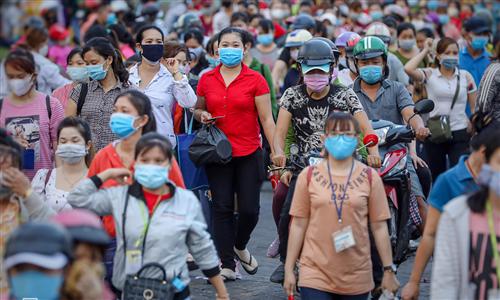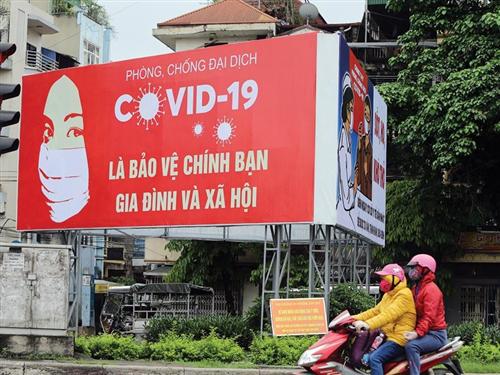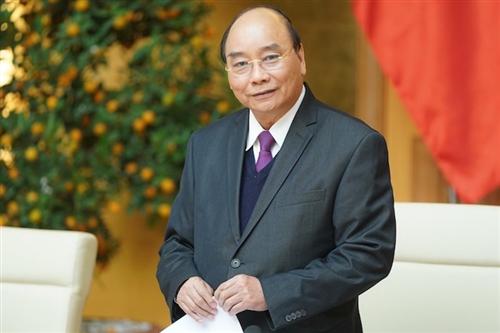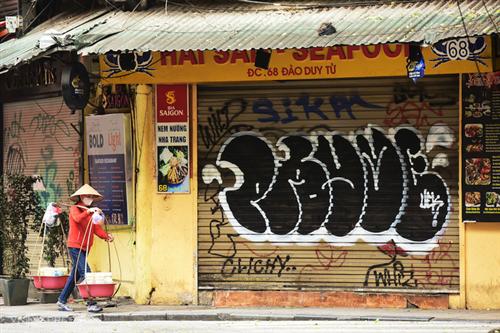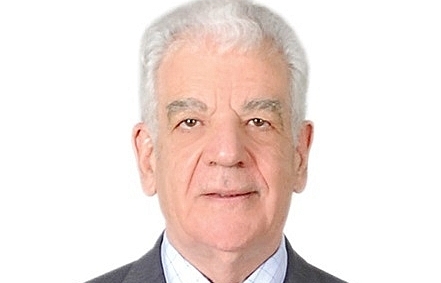Vietnam rolls out much-needed relief
Vietnam rolls out much-needed relief
With the aim of leaving no-one behind in fighting the global health crisis, the government is taking swift and sturdy action to protect investors, businesses, and people via relief measures at a time when major economic sectors have had to send workers into temporary unemployment.
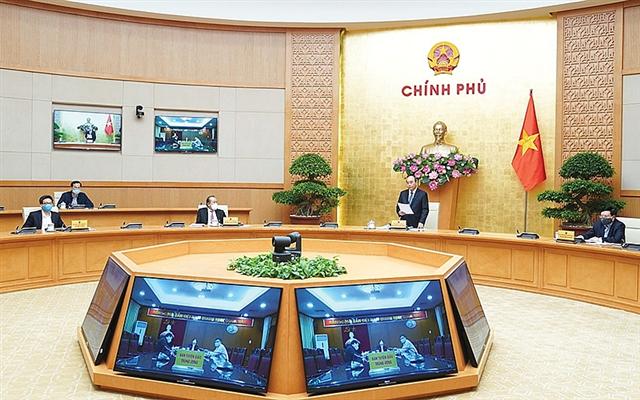
Vietnam rolls out much-needed relief
|
Nguyen Thi Van and Nguyen Van Nam, a hardworking couple based in Hanoi’s Dong Anh district, are enduring some dark days. Before the current COVID-19, the couple’s monthly income was nearly VND10 million ($435), enough to cover living costs for the family of four, but now they struggle to see just how they can live day-by-day without money and jobs as their workplace has been temporarily closed. Van works for an English language centre which has provided no work since last December, while Nam has been employed by Japanese electronics giant Panasonic. Now they are in a similar situation, awaiting and expecting the fresh government measures that could keep their two sons from starving.
Minister of Planning and Investment Nguyen Chi Dung said, “While great difficulties are hitting people and enterprises, a bowl of rice for the poor at times like this is worth thousands of times more than discussions.” Looking at the suffering of people across the country during the crisis, he has done his utmost to craft measures as soon as possible to help people and businesses overcome challenges.
Based on a proposal from the Ministry of Planning and Investment (MPI), at the meeting last week between the government and localities, the government officially adopted a support package worth VND62 trillion ($2.7 billion) to ensure social security, contribute to maintaining social stability, and demonstrate the government’s commitments.
The package will be delivered to people with meritorious services, contracted employees, part-time workers, and those on unpaid leave or with reduced income as a result of the pandemic. It will also apply to freelancers, employees who have been fired without eligibility for unemployment benefits, and those who have no labour contract. Meanwhile, businesses could borrow money at zero lending rate from the Vietnam Bank for Social Policies (VBSP) to ensure they have enough funds to pay affected employees.
Expert Ngo Tri Long said that with the tight budget, the package will solve many difficulties for employees. “The most important issue is progress. It is a vital factor to support labourers and business in order to avoid job losses,” he said. “At all costs, firms must retain employees to back disadvantaged groups in society.”
Numerous foreign-invested enterprises in Vietnam have been sabotaged by COVID-19. For example, automakers such as Nissan, Ford, Toyota, and Honda all had shut down production temporarily in Vietnam to protect their employees amidst the rising number of confirmed COVID-19 infections in the country.
According to the MPI, the first three months saw the exit of nearly 35,000 businesses. Of which, 18,600 are temporarily closed, up 26 per cent on-year, and 4,100 have been dissolved entirely. Some 12,200 others are in the process of dissolution.
Struggling against the health crisis, all countries over the world have proposed the largest bailout measures ever seen. The G20 has provided a $7-trillion package, the United States directly supported people and businesses with measures with $2 trillion, and Japan is offering $1 trillion.
In addition to the said VND62 trillion ($2.7 billion) package, the Vietnamese government has approved relief for businesses to not just survive but to help revive the economy after the pandemic. The monetary package worth VND300 trillion ($13 billion) to provide capital, a fiscal measure worth VND180 trillion ($7.8 billion), an electricity-price support package of VND12 trillion ($520 million), and telecommunication-price assistance package valued at VND15 trillion ($650 million) are contributing to helping businesses to stay afloat. “About 98 per cent of businesses will able to enjoy these policies,” confirmed Prime Minister Nguyen Xuan Phuc.
Besides the harsh business climate, numerous enterprises have been seeking out what opportunities they can during the pandemic. Hong Kong’s (China) textile firm Texhong Vietnam has decided to invest an additional $500 million in Vietnam this year alone. However, to maintain operations with nearly 20,000 local employees, the company has asked for privilege that the government previously approved for Samsung and LG, in allowing its experts and other staff to enter Vietnam via the Mong Cai border gate in the northeastern province of Quang Ninh. “This is an important factor for Texhong to maintain the working place for its employees, as well as significantly contribute their resources to the socio-economic development of the province and country, especially in this difficult context,” said Nguyen Van Thang, Chairman of Quang Ninh People’s Committee.
PM Phuc reaffirmed that mobilising resources from the private sector and through foreign direct investment (FDI) is the most essential now. Despite the pandemic, Vietnam is striving to attract a bigger sum of FDI to seize the opportunities created by transferring investment into Southeast Asia.




